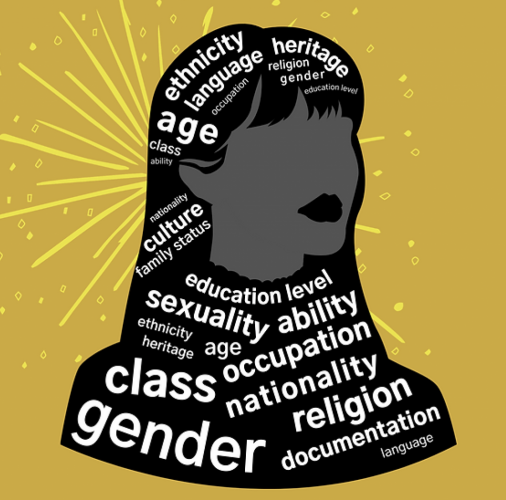I found it frustrating to hear academics in Cambridge arguing that universities should not engage with Advance HE, or any forms of bias awareness or racism training on the basis that ‘universities should be neutral’. A tactic of British colonisation was to build accredited institutes that taught a western white male understanding of the world, presenting their own lens as the correct one. This grasp spans through science, philosophy, humanities and the arts, with an aim of converting and dominating communities with a western ideology. This has been incredibly successful over the globe, and within the UK is assumed to be the pinnacle of understanding. This coercion is so blinding that it appears to us as the ‘norm’, or as neutrality despite it highly favouring the experience of white heteronormative men. In this piece by the telegraph, neutrality is conflated with the white British experience.
I can help but believe that cambridge’s report of only 5 instances of racism in the 5 years that their study examined, is flawed as it is judged against the university’s own definition of racism. The institution is no doubt resistant to re-evaluating their understanding of racism, as they are a direct benefactory and driver of institutional racism. As a trans white person Having grown up outside of Cambridge, far away from money and education, I am aware of the disparity between the experience of those who are able to succeed within the university’s environment and who is firmly kept out by the university’s barriers. I was conditioned to believe that british values were the only values, and despite not fitting into the universities ideology, I am aware of how much easier it would be for me as a white person to navigate the school compared to a black trans person. My whiteness, the reading of ‘sameness’ between myself and the institute’s founders, grants me a privilege of safety, a marker of belonging, an indication of the ‘in group’, no one looks to my skin colour to determine that I shouldn’t be there, it goes unmentioned, unseen, the norm. Orr’s call for ‘Excellence over ideology’ is thinly veiled racism with ‘excellent’ a synonym for whiteness, assimilation, and empire. Those who do not agree with his (and the telegraph’s) preferred narrative are mocked, and looked down upon, and misinformation and opinion is stated as fact – the tools in which he claims are being used by the ‘woke’, are instead directly used by himself to attempt to hold power.
Within my own teaching this leads me to question what norms and cultural values I hold that limit my understanding of someone else’s excellence. What have I been conditioned to value? What have I been taught to see as valuable, insightful, innovative, creative? There are no doubt unconscious biases within my values. I want to continue to question the origins of my beliefs, the origins of the voices in my head. Who’s voices show up? I think one of the most powerful and transformative experiences one can have is to be inquisitive towards others articulation of their experience. It is why I love visual arts, performance, music. It is an opportunity to visit with others, to get a glance at the churning of their brains and souls. I am interested in challenging myself to get out of my comfort zone of Academica, to work harder to turn towards diverse expressions of connection. My work may take the shape of new assessment models / required outcomes. People of the global majority have moved mountains to assimilate whiteness in order to be successful at the systems whiteness has created. Myself and other white people have lots to do to even start to begin to level the playing field.
